Are Essential Oils Aromatherapy
Essential oils and aromatherapy have gained popularity for their potential health benefits, but what exactly are they and how do they work?
We will explore the world of essential oils, the practice of aromatherapy, and the numerous benefits they offer.
From reducing stress and anxiety to improving sleep quality and boosting the immune system, essential oils have a wide range of uses.
We will also discuss how to use essential oils safely and the precautions to keep in mind.
We will address the potential risks and side effects associated with essential oils, and ultimately determine their effectiveness in putting essential oils in aromatherapy.
Join us as we delve into the world of essential oils and aromatherapy to discover their true potential.
Key Takeaways:
What Are Essential Oils?
Essential oils are natural aromatic compounds extracted from plants, capturing their essence and fragrance.
These oils are obtained through various extraction methods like distillation or cold pressing, preserving the plant’s beneficial properties.
- Distillation involves the use of steam to extract the oils from plant materials, resulting in pure and concentrated essential oils.
- Cold pressing is typically used for citrus fruits, where the oils are extracted by mechanically pressing the rinds to release the aromatic compounds.
Each essential oil carries distinct characteristics based on the specific plant source it is derived from, offering a wide range of scents, therapeutic properties, and benefits.
What Is Aromatherapy?
Aromatherapy is a holistic healing treatment that uses natural plant extracts, such as essential oils, to promote overall health and well-being. It aims to enhance physical and emotional health through the inhalation or topical application of these aromatic compounds.
The practice of aromatherapy dates back thousands of years, with ancient civilizations like the Egyptians, Greeks, and Romans utilizing fragrant oils for various purposes. These civilizations recognized the healing properties of plants and their scents, incorporating them into rituals, ceremonies, and daily life. Today, aromatherapy is widely used in alternative medicine and is known for its therapeutic benefits in reducing stress, improving sleep quality, relieving pain, and boosting mood.
How Do Essential Oils Work In Aromatherapy?
Essential oils work in aromatherapy by interacting with the limbic system, a part of the brain responsible for emotions, memories, and behaviors. Research suggests that inhaling certain oils can trigger responses that benefit health and well-being.
This interaction occurs due to the inhalation of volatile molecules from the oils, which then travel through the olfactory system and directly impact the limbic system. Studies have shown that specific essential oils, such as lavender and peppermint, can have calming effects by reducing cortisol levels and promoting relaxation.
The molecules in essential oils also have the ability to penetrate the skin during massage, providing localized effects. For instance, tea tree oil is known for its antimicrobial properties and can help in treating skin conditions like acne.
What Are The Benefits Of Aromatherapy With Essential Oils?
Aromatherapy with essential oils offers a wide range of benefits for both physical and emotional well-being. From reducing stress and anxiety to improving sleep quality and relieving pain and inflammation, these natural extracts have shown promising results in various studies.
The use of essential oils in aromatherapy can also have positive effects on mental clarity, concentration, and overall cognitive function. Studies have indicated that certain scents, such as lavender, rosemary, and peppermint, can enhance focus and memory. By inhaling these fragrances, individuals may experience increased alertness and productivity.
Reduces Stress and Anxiety
Aromatherapy with essential oils has been found to be effective in reducing stress and anxiety levels, promoting relaxation and a sense of calm. Certain oils like lavender oil and peppermint oil are known for their soothing properties.
Along with lavender and peppermint oils, chamomile oil and sandalwood oil have also been shown to have calming effects on the mind and body due to their unique chemical compositions.
Studies conducted by the American College of Healthcare Sciences suggest that inhaling the aroma of these aromatherapy oils can trigger the release of neurotransmitters that promote feelings of relaxation.
The European Medicines Agency recognizes the benefits of aromatherapy with essential oils in managing stress and anxiety, highlighting the importance of using quality, pure oils for optimal results.
Improves Sleep Quality
Aromatherapy using essential oils has shown promise in improving sleep quality and promoting relaxation before bedtime. Lavender oil, in particular, is known for its sleep-inducing properties, helping individuals achieve a more restful sleep.
Essential oils have been used for centuries for their various therapeutic benefits, and their role in improving sleep quality is backed by scientific research. Besides lavender oil, chamomile oil is another popular choice known for its calming effects, making it a great option for winding down before sleeping.
Studies have indicated that inhaling certain essential oils can have a direct impact on the brain’s limbic system, responsible for emotions and memories, thus aiding in relaxation and promoting a sense of calmness conducive to a good night’s sleep.
Relieves Pain and Inflammation

Aromatherapy utilizing essential oils has been recognized for its pain-relieving and anti-inflammatory properties.
Oils like peppermint oil and eucalyptus oil are among the most popular choices known for their natural analgesic and anti-inflammatory effects. Peppermint oil, with its cooling sensation, can provide relief from headaches and muscle pain, while eucalyptus oil is often used to soothe respiratory conditions and inflammation.
Research studies have shown that these essential oils contain compounds that can help block pain receptors and reduce swelling, making them effective options for managing various types of pain. The aroma of these oils can also promote relaxation and stress relief, enhancing their overall therapeutic benefits.
Boosts Immune System
Certain essential oils used in aromatherapy have been linked to boosting the immune system, helping the body defend against pathogens and infections. Eucalyptus oil and tea tree oil are examples of oils known for their immune-boosting properties.
These essential oils work by stimulating the body’s natural defense mechanisms, promoting overall well-being and resilience. Studies have shown that essential oils myths Eucalyptus oil and tea tree oil possess antimicrobial and anti-inflammatory properties, making them effective in supporting the immune system.
The inhalation of these oils can help clear respiratory passages and reduce congestion, aiding in the prevention and treatment of respiratory infections. The use of essential oils in aromatherapy is a natural and holistic approach to enhancing the body’s immune response.
How To Use Essential Oils For Aromatherapy?
Utilizing essential oils for aromatherapy involves various methods such as inhalation, topical application, and diffusion. Each method offers unique benefits and applications in promoting health and well-being.
When inhalation is chosen, the scent of the essential oil enters the body through the olfactory system, reaching the brain and influencing emotions and mood. This method is quick-acting and can help alleviate stress, anxiety, and even improve focus and concentration.
Topical application involves diluting essential oils with carrier oils and applying them directly to the skin. This way allows the oils to be absorbed through the skin and into the bloodstream, offering benefits such as pain relief, skincare, and aromatherapy essentials.
Another popular method is diffusing essential oils into the air using diffusers. This method not only freshens the air but also provides therapeutic effects, supporting respiratory health, inducing relaxation, and creating a calming atmosphere in any space.
Inhalation
Inhalation of essential oils is a popular method in aromatherapy, where the aromatic compounds are breathed in to promote various health benefits. This method can help reduce stress, improve focus, and support respiratory health.
Research studies have shown that inhaling essential oils can have a positive impact on both the mind and body. The aroma of these oils can stimulate the limbic system, the part of the brain that controls emotions and memories, leading to feelings of relaxation and well-being. Certain essential oils like lavender have been found to have anxiolytic effects, helping to alleviate anxiety and promote a sense of calm.
Topical Application
Topical application of essential oils involves diluting them with carrier oils and applying them directly to the skin. This method is commonly used for skincare purposes, addressing issues like acne, dryness, or inflammation.
Essential oils possess potent properties that can benefit the skin in various ways. For example, tea tree oil is known for its antibacterial qualities, making it effective in combatting acne. Lavender oil is often used for its calming effects on irritated skin, while peppermint oil provides a cooling sensation. Incorporating essential oils into your skincare routine can offer a natural and holistic approach to maintaining healthy skin. The aromatherapy aspect of these oils can enhance relaxation and promote overall well-being.
Diffusion
Diffusion is a method of dispersing essential oil particles into the air, creating a fragrant and therapeutic atmosphere. This technique is often used to promote relaxation, improve mood, and purify the air in living spaces.
When essential oils are diffused, they release aromatic molecules that can have a profound impact on both the mind and body. Research indicates that certain essential oils, such as lavender and peppermint, have calming effects that can help reduce stress and anxiety levels.
The practice of aromatherapy through diffusion has been shown to have respiratory benefits by supporting clear breathing passages and easing congestion. Studies have suggested that inhaling essential oils like eucalyptus or tea tree oil can help improve respiratory function and provide relief from common respiratory issues.
What Are The Precautions When Using Essential Oils For Aromatherapy?
While essential oils offer numerous benefits, it is crucial to take precautions when using them for aromatherapy. Safety measures include proper dilution, patch testing, and avoiding ingestion to prevent adverse reactions or skin irritation.
It is advisable to store essential oils in a cool, dark place away from direct sunlight to maintain their potency. When applying topically, always blend them with a carrier oil to reduce the risk of sensitization or irritation, especially for individuals with sensitive skin. Pay attention to the quality of essential oils purchased, opting for pure, organic options to ensure maximum therapeutic benefits without additives or synthetic chemicals.
Dilute Properly

Regarding dilution ratios, a common guideline is to use 1-2% of essential oil to the total volume of carrier oil for general use. For sensitive skin or facial application, it’s recommended to use an even lower concentration, around 0.5%. Some potent essential oils like peppermint or cinnamon may require further dilution due to their strong nature.
Safety tips to keep in mind include conducting a patch test before full application, avoiding sunlight exposure after applying photosensitive oils, and always storing oils in dark, glass containers away from direct sunlight to maintain their quality.
Patch Test Before Use
Before widespread application, conducting a patch test with a diluted oil on a small skin area is recommended to check for allergic reactions or skin sensitivities. This precaution helps identify any adverse responses before full use.
During a patch test, a small amount of diluted essential oil is applied to a clean patch of skin, typically on the inner forearm or behind the ear. After application, it is crucial to cover the area with a bandage or gauze to prevent the oil from spreading. The skin should be observed for at least 24 hours for any signs of irritation, redness, itching, or swelling. If any adverse reactions occur during this period, it is important to immediately remove the oil using mild soap and water, and seek medical advice if symptoms persist.
Avoid Ingestion
Ingesting essential oils is generally discouraged in aromatherapy due to their high concentration and potential risks. Oils can be toxic when consumed orally, leading to adverse effects on health, especially for individuals with sensitive skin or underlying conditions.
Essential oils are highly potent extracts derived from plants, and as such, their chemical composition can be harmful when ingested orally. The digestive system may struggle to process the concentrated compounds found in these oils, resulting in nausea, vomiting, or even organ damage.
Caution must be exercised when using essential oils to avoid ingestion. Inhalation and topical application are safer alternatives that still allow for the therapeutic benefits of aromatherapy without the associated risks of oral consumption.
Consult With A Professional
Seeking guidance from a qualified professional, such as an aromatherapist or healthcare provider, is advisable before using essential oils, especially for pregnant women, children, or individuals on medications. Professional advice ensures safe and effective usage.
When seeking advice on essential oil use, it is crucial to consider individual health conditions, allergies, and sensitivities. A personalized approach can help tailor the selection of oils and their application methods to suit specific needs. Consulting with experts can assist in identifying potential interactions with existing medications, thereby preventing any adverse effects. This tailored guidance ensures that the benefits of aromatherapy are maximized while minimizing risks, particularly for vulnerable populations. By collaborating with professionals, individuals can experience the therapeutic benefits of essential oils in a safe and effective manner.
Are There Any Risks Or Side Effects Of Using Essential Oils For Aromatherapy?
While essential oils offer therapeutic benefits, there are potential risks and side effects associated with their improper use in aromatherapy. Skin irritation, allergic reactions, photosensitivity, and toxicity are some of the adverse outcomes that may occur.
It is essential to understand that essential oils are highly concentrated extracts from plants, making them potent substances that can cause harm if not used correctly. Skin irritation is one of the most common side effects, especially when oils are applied directly without dilution. This can result in redness, itching, or even a burning sensation.
Allergic reactions are possible, as these oils contain various compounds that may trigger sensitivities in some individuals. Individuals with asthma or other respiratory conditions should be cautious, as inhaling certain oils could exacerbate their symptoms.
Skin Irritation
Skin irritation is a common side effect of using essential oils, especially for individuals with sensitive skin. Direct contact or improper dilution can lead to redness, itching, or burning sensations on the skin, highlighting the importance of proper application.
Regarding the causes of skin irritation from essential oils, it often stems from the potency and concentration of certain oils, as well as individual skin sensitivities. Essential oils contain powerful compounds that can be too strong for some skin types, triggering a reaction. Symptoms of skin irritation may vary from mild to severe, including inflammation, rashes, or in rare cases, blistering. To learn more about floral essential oils, please click here.
To prevent such reactions, it is crucial to dilute essential oils properly before applying them to the skin. Mixing them with a carrier oil like coconut or jojoba oil can help reduce the risk of irritation. Performing a patch test on a small area of skin can help identify any potential sensitivity before widespread use.
For those with sensitive skin, opting for gentler essential oils such as lavender, chamomile, or rose can be more suitable. These oils are known for their calming and soothing properties, making them less likely to cause irritation. Always ensure to read the label and follow recommended dilution ratios to maintain skin safety.
Allergic Reactions
Allergic reactions to essential oils can occur in some individuals, manifesting as skin rashes, hives, or respiratory discomfort. Awareness of potential allergens and performing patch tests can help identify and avoid oils that trigger allergic responses.’,
It is essential to understand that even natural substances like essential oils may cause adverse reactions due to individual sensitivities. Some common allergenic essential oils include citrus oils like lemon and orange, as well as tree oils such as tea tree and eucalyptus.
Recognizing the signs of an allergic reaction, which may vary from mild itching to severe breathing difficulties, is crucial for prompt action. Avoiding direct skin contact, diluting oils, and ensuring proper ventilation during aromatherapy sessions can significantly reduce the risk of adverse effects.
Photosensitivity

Photosensitivity, a heightened skin reaction to sunlight, can result from certain essential oils like citrus oils when applied topically. Caution should be exercised when using photosensitive oils to prevent skin damage or sunburn.
When these oils are absorbed by the skin, they can cause a phototoxic reaction, making the skin more sensitive to UV radiation. Common photosensitive essential oils include essential oils do work such as bergamot, grapefruit, and lemon oils.
To minimize the risk of photosensitivity, it is recommended to avoid sun exposure or use protective clothing like hats and sunglasses after applying these oils. It is advisable to wait at least 12 hours before exposing the skin to direct sunlight after using photosensitive essential oils.
Toxicity
Ingesting essential oils can lead to toxicity due to their concentrated nature, causing adverse effects on health. Symptoms of oil toxicity may include nausea, vomiting, or respiratory issues, emphasizing the importance of safe use and avoiding ingestion.
When essential oils are ingested, the concentrated compounds can overwhelm the body’s natural detoxification mechanisms, leading to potential poisoning. Oil toxicity can have serious consequences such as liver damage, neurological symptoms, or even cardiac issues. It is crucial to remember that essential oils are highly potent substances and should only be used externally or aromatically, never swallowed. Safe practices when using essential oils include diluting them properly, conducting a skin patch test before topical application, and keeping them out of reach of children to prevent accidental ingestion.
Conclusion: Essential Oils And Aromatherapy – Effective Or Not?
Essential oils and aromatherapy have demonstrated effectiveness in addressing various health conditions and promoting overall well-being. While research supports their therapeutic benefits, it is essential to use quality oils and follow safety guidelines for optimal results.
Studies have shown that lavender oil can help reduce anxiety and improve sleep quality, while peppermint oil has been found to aid in relieving headaches.
- When using essential oils, it’s important to dilute them properly to prevent skin irritation, and always perform a patch test before widespread use.
- Consult with a healthcare professional before incorporating essential oils into your healthcare routine, especially if you have underlying medical conditions.
| Recommended Usage Tips: | Aromatherapy diffusers can help disperse the oils effectively throughout a room, promoting a pleasant and therapeutic environment. |
|---|---|
| It’s also advisable to store essential oils in a cool, dark place to maintain their potency. |
Frequently Asked Questions
What is aromatherapy and how does it relate to essential oils?
Aromatherapy is the practice of using natural plant extracts, such as essential oils, to promote physical, emotional, and spiritual well-being. Essential oils are a key component of aromatherapy and are used for their unique scents and therapeutic properties.
Are essential oils safe for aromatherapy use?
While essential oils are generally safe for aromatherapy use, it is important to follow proper dilution guidelines and use caution when applying them topically. Some essential oils may also be irritating to those with allergies or sensitive skin, so it is important to do a patch test before using them.
What are some common essential oils used in aromatherapy?
Some common essential oils used in aromatherapy include lavender, peppermint, eucalyptus, lemongrass, and tea tree. Each of these oils has unique therapeutic properties and can be used alone or in combination with other oils for various purposes.
How do essential oils work in aromatherapy?
Essential oils work in aromatherapy through inhalation and absorption. When inhaled, the molecules of the oils enter the body and interact with the brain and nervous system, producing various physiological and emotional responses. When applied topically, the oils are absorbed into the skin and can provide localized benefits.
What are some potential benefits of using essential oils in aromatherapy?
Some potential benefits of using essential oils in aromatherapy include stress relief, improved sleep, reduced pain and inflammation, improved mood and energy levels, and enhanced immune function. However, it is important to note that more research is needed to fully understand the effects of essential oils on the body.
Can anyone use essential oils for aromatherapy?
While essential oils are generally safe for most people, it is important to consult a certified aromatherapist or healthcare professional before using them, especially if you have any pre-existing medical conditions or are pregnant or breastfeeding. They can help you determine which oils are safe and appropriate for your individual needs.



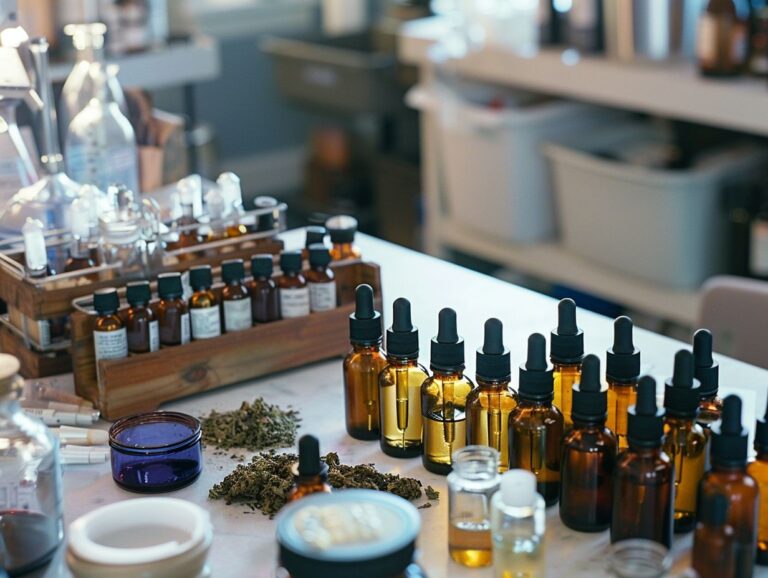
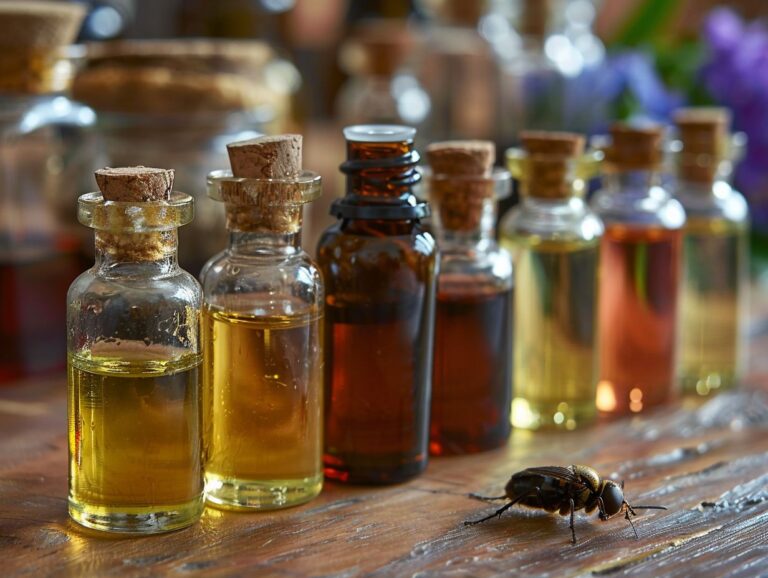
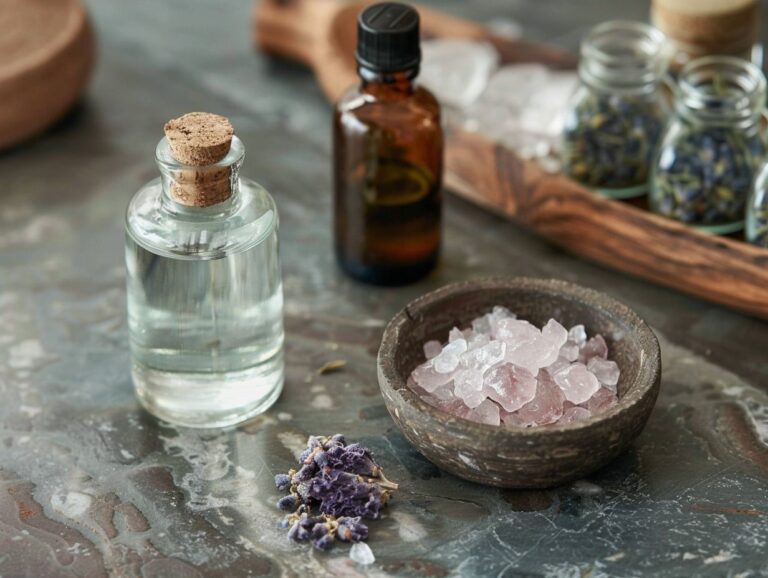
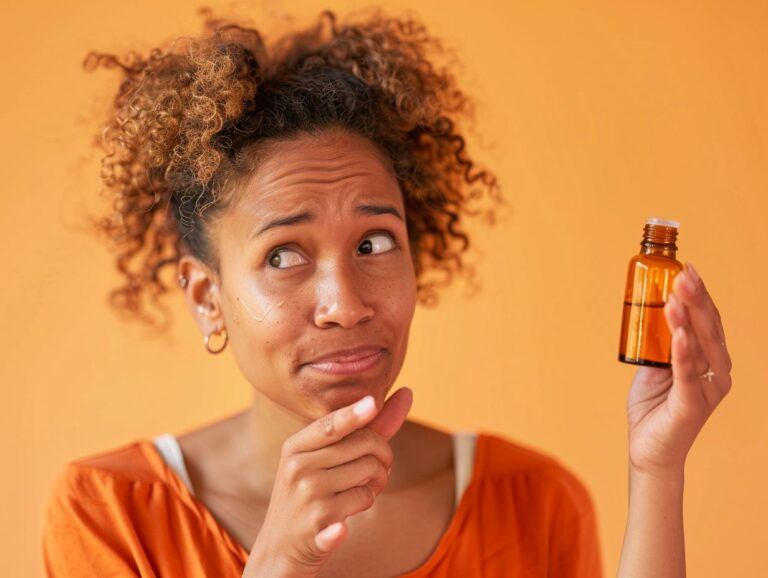
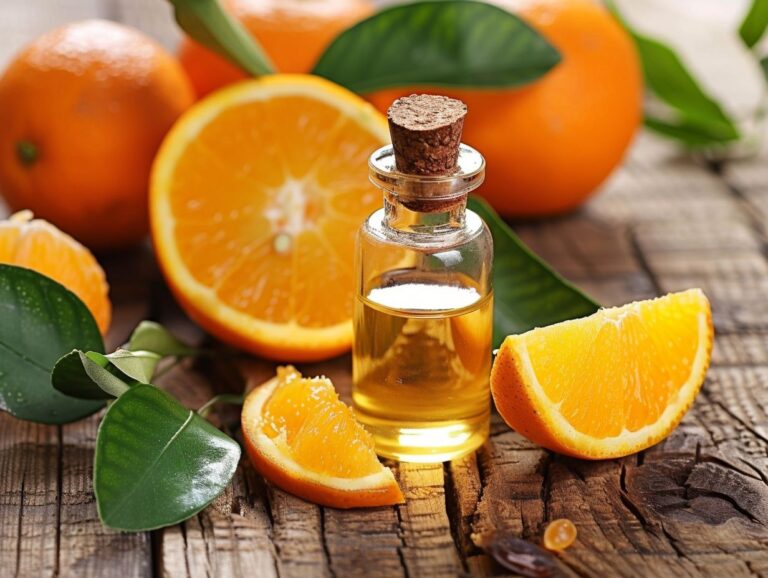
2 Comments